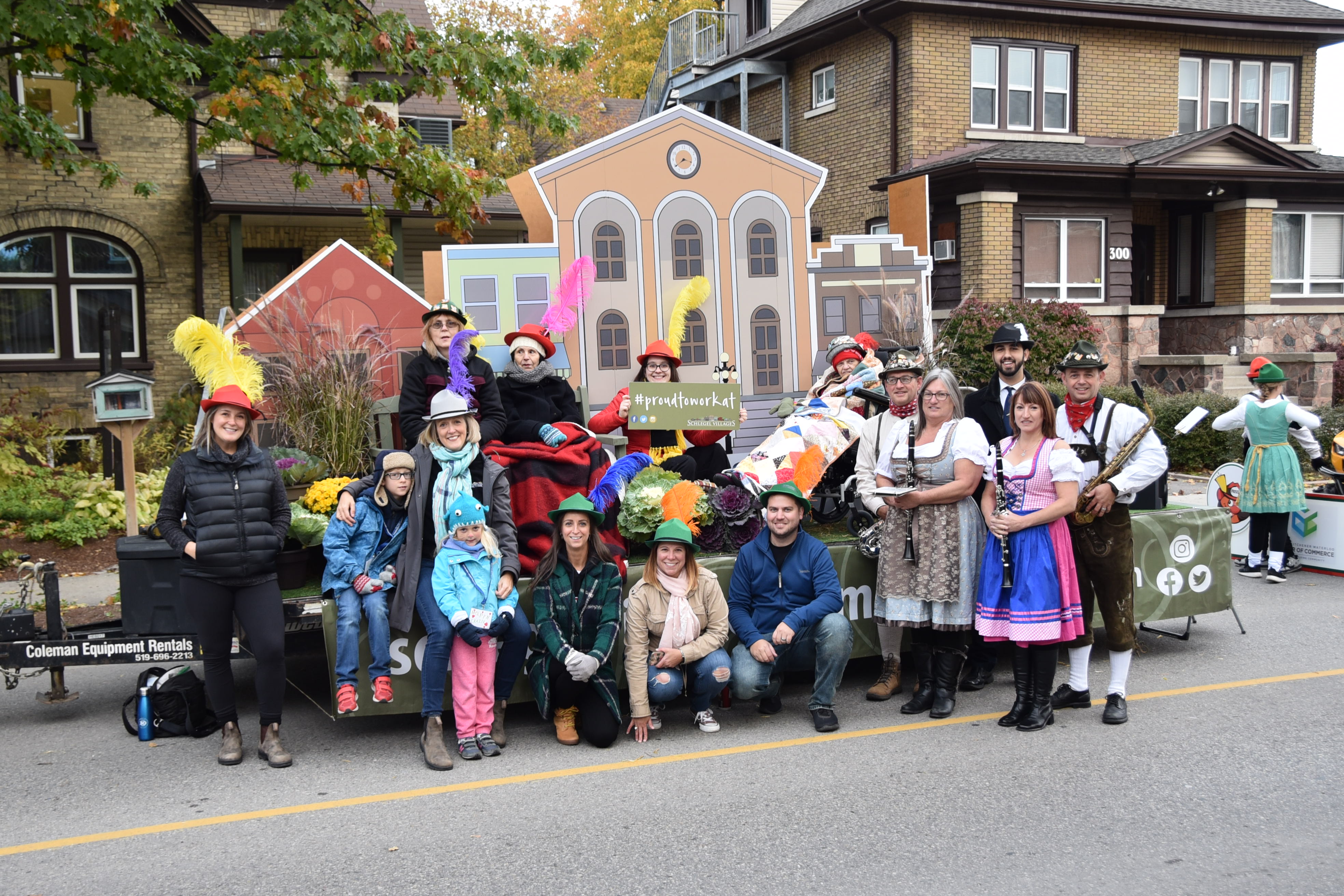For the sake of both team members and residents, the conversation must take place
Sitting in the Glendale Crossing library before a warm fireplace as heavy spring rains beat down on the city of London, Marion Hird shares a few stories from her past, along with some current perspective on life. A poet and a philosopher who overheard a conversation I’d had behind her in The Village’s community centre, Marion was drawn to me through our collective love of the written word.

Marion Hird of Glendale Crossing
shares stories from her past
“You’re a writer?” she asked quizzically, looking up from her computer. “Well, so am I.” Still only minutes into this impromptu conversation she remarkably recited a poem she’d written some 40 years before, which described the plight of someone close to her who struggled through the pangs and sorrows of addiction. The poem is deep and long, weaving together with each stanza a story familiar to many – I can tell it flowed straight from her heart.
Our first brief conversation led to the extended one in the library, where Marion offers snapshots of points in time along her journey through life: losses she experienced, the joys she has as a grandmother and the power of words to act as outlets. She still writes today, always on the lookout for sparks of inspiration from the minds and mouths of her fellow residents. Sometimes she’s called upon to write tributes to friends who have passed away.
She tells me some of her favourite years were spent in university studying philosophy, religion and psychology. “Everyone, no matter what,” says Marion, “should take a philosophy course at some point in their lives.”
I ask why she didn’t pursue a career beyond university in one of those fields? Why were those days the happiest time of her life and not others in a longer career in academia? Surely she had the mind for it? This is the first time mental health comes into the conversation, taking us down a track that often crosses my mind when I think of long-term care, yet seems far too rare in discussion.
Marion had many labels thrust upon her in her younger years and many terms were tossed about. Schizophrenia (which was later confirmed as mis-diagnosed), bi-polar disorder and depression all became part of her lexicon. She was simply too sick, she says, to pursue anything beyond university in a dedicated, meaningful way. Marion distills it down to mental illness before correcting herself a few minutes later.
“I wouldn’t call it an illness,” she says, “I’d call it strength.”
Resilience, fortitude, endurance and courage are all traits that follow a person who lives with mental health issues, along with a sense of humour, at least in Marion’s case.
“My aunt told me: ‘one thing I always admire about you is that no matter what happens, you always seem to be able to rise above it,’ ” recalls Marion.
People struggling with any form of mental illness rise above much throughout their lives, she adds, and the caregivers who support the thousands of people who live in long-term care settings must do more to understand the people behind a mental health diagnosis.
Most caregivers she’s met are wonderful, yet she wonders how much time a personal support worker spends in training talking about the issues that affect what might be a high percentage of their residents. Times are changing and there are more people today living in long-term care with increasingly complex needs than at any other point in history. Residents in their 50s and 60s are much more common and there are plenty who are younger than that.
Organizations need to be talking about mental health, Marion says, for the sake of both the teams and the residents. She doesn’t fit the image of a stereotypical resident and she says she feels like her time at Glendale Crossing healed her in many ways, but there are plenty others llike her who live elsewhere and they all deserve the same opportunities.
“This is the future of Schlegel Villages,” Marion says, so she’s happy to have the conversation.
- Previous
- View All News
- Next


























































































































































































































































































































































































































































































